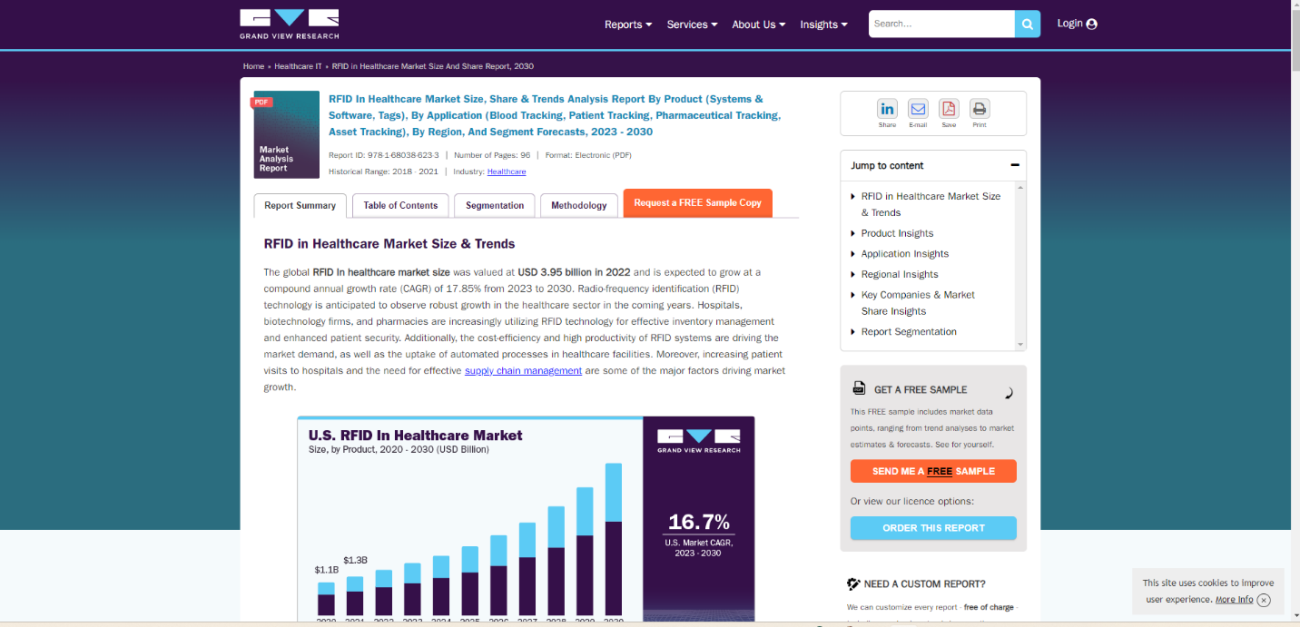
The global RFID in healthcare market, valued at USD 3.95 billion in 2022, is projected to witness a robust CAGR of 17.85% from 2023 to 2030. RFID technology is gaining traction in healthcare, especially in hospitals, biotech firms, and pharmacies, for effective inventory management and enhanced patient security. The market is driven by the cost-efficiency and productivity of RFID systems, as well as the increasing adoption of automated processes in healthcare.
Integrating RFID technology streamlines inventory management, reduces stock-outs, and enhances patient safety by tracking essential medical supplies. The medical field benefits from RFID tagging, enabling staff to track items used in surgeries efficiently. The pharmaceutical tracking segment experiences rapid growth, driven by the need to trace and authenticate medications across the supply chain.
The COVID-19 pandemic has accelerated RFID adoption in healthcare for managing patients and personnel efficiently. RFID tools have seen increased usage in tracking assets and equipment, improving the efficiency and accountability of care teams during public health emergencies.
North America dominates the market, with the U.S. contributing significantly due to regulations for patient safety, medical device tracking mandates, and a rising number of hospitals. The Asia Pacific region is expected to witness the fastest growth, driven by improving healthcare infrastructure, a large pharmaceutical industry, and increasing healthcare expenditure.
Major players in the market, such as GAO RFID Inc., Alien Technology, Zebra Technologies Corp., Avery Dennison Corporation, and others, are engaging in strategic initiatives to strengthen their market presence. The market is segmented by product (systems & software, tags) and application (asset tracking, patient tracking, pharmaceutical tracking) across regions (North America, Europe, Asia Pacific, Latin America, MEA). The RFID in healthcare market is anticipated to reach USD 14.65 billion by 2030.
